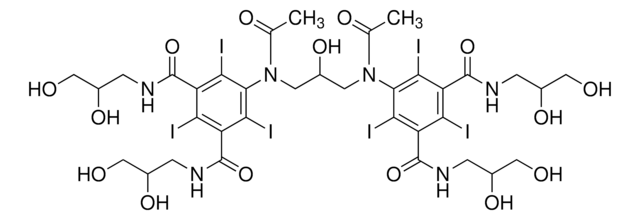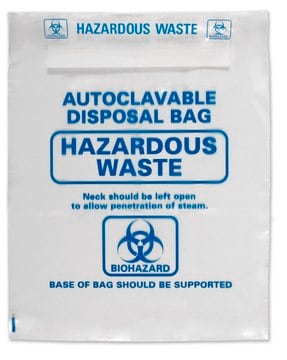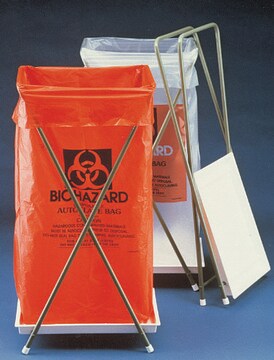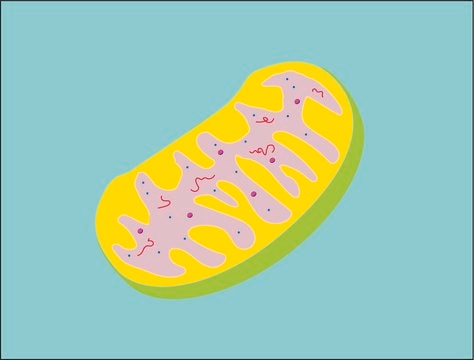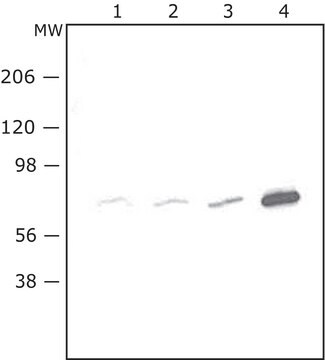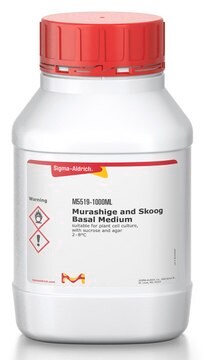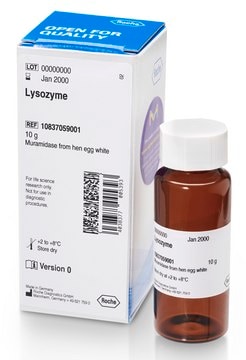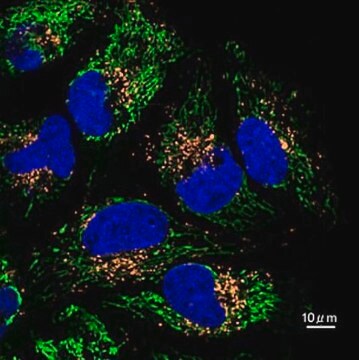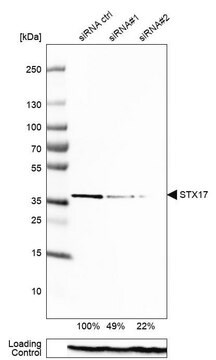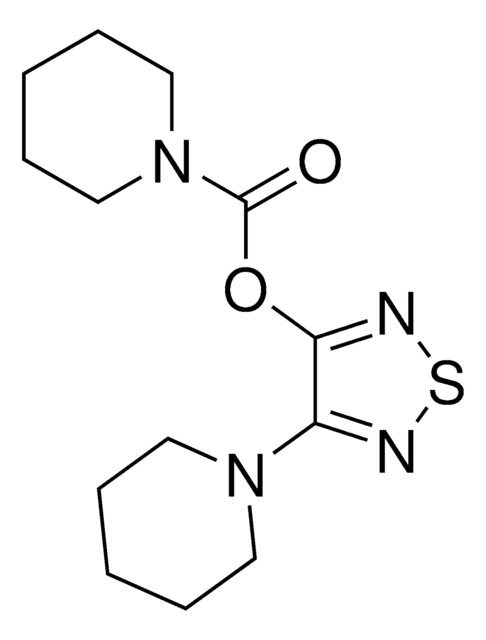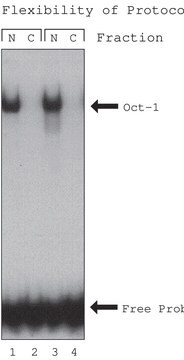Kluczowe dokumenty
LYSISO1
Lysosome Isolation Kit
sufficient for 25 g (tissue), sufficient for 20 mL (packed cells), enrichment of lysosomes from tissues and packed cells
About This Item
Polecane produkty
Poziom jakości
zastosowanie
sufficient for 20 mL (packed cells)
sufficient for 25 g (tissue)
metody
centrifugation: suitable
fractionation: suitable
temp. przechowywania
2-8°C
Opis ogólny
Zastosowanie
- in the isolation of cytosol and lysosome
- to obtain enriched light and heavy lysosomal fractions from cultured cells
- in the isolation of lysosomes of mouse bone marrow macrophages (BMMs)
- in lysosome purification
The Lysosome Isolation Kit provides a method for isolating lysosomes from animal tissues and from cultured cells by differential centrifugation followed by density gradient centrifugation and/or calcium precipitation. The presence of lysosomes can be measured by assaying the activity of the lysosomal marker Acid Phosphatase, with the Acid Phosphatase Assay Kit (Cat. No. CS0740). Separation from other organelles can be measured using the appropriate marker detection kits available from Sigma.
Cechy i korzyści
- Generates functional organelles for metabolism and disease research
- Includes protease inhibitor to manage degradation
- Measures integrity with included Neutral Red dye
- Choose from multiple options to obtain enriched fractions
- Enriched fractions for intact and functional lysosomes from tissues and cells
- Suitable for functional studies including protein degradation
Elementy zestawu są też dostępne oddzielnie
- P8340Protease Inhibitor Cocktail, for use with mammalian cell and tissue extracts, DMSO solution 5 mLKarta charakterystyki
Zastosowanie
Hasło ostrzegawcze
Warning
Zwroty wskazujące rodzaj zagrożenia
Zwroty wskazujące środki ostrożności
Klasyfikacja zagrożeń
Eye Irrit. 2 - Skin Irrit. 2
Kod klasy składowania
10 - Combustible liquids
Temperatura zapłonu (°F)
188.6 °F
Temperatura zapłonu (°C)
87 °C
Certyfikaty analizy (CoA)
Poszukaj Certyfikaty analizy (CoA), wpisując numer partii/serii produktów. Numery serii i partii można znaleźć na etykiecie produktu po słowach „seria” lub „partia”.
Masz już ten produkt?
Dokumenty związane z niedawno zakupionymi produktami zostały zamieszczone w Bibliotece dokumentów.
Klienci oglądali również te produkty
Produkty
Wirowanie oddziela organelle na podstawie rozmiaru, kształtu i gęstości, ułatwiając frakcjonowanie subkomórkowe w różnych próbkach.
The isolation of subcellular fractions by centrifugation is a commonly used technique and is widely applicable across multiple cell and tissue types. Because organelles differ in their size, shape, and density, centrifugation can be easily employed to separate and purify organelle fractions from gently homogenized samples.
Nasz zespół naukowców ma doświadczenie we wszystkich obszarach badań, w tym w naukach przyrodniczych, materiałoznawstwie, syntezie chemicznej, chromatografii, analityce i wielu innych dziedzinach.
Skontaktuj się z zespołem ds. pomocy technicznej
